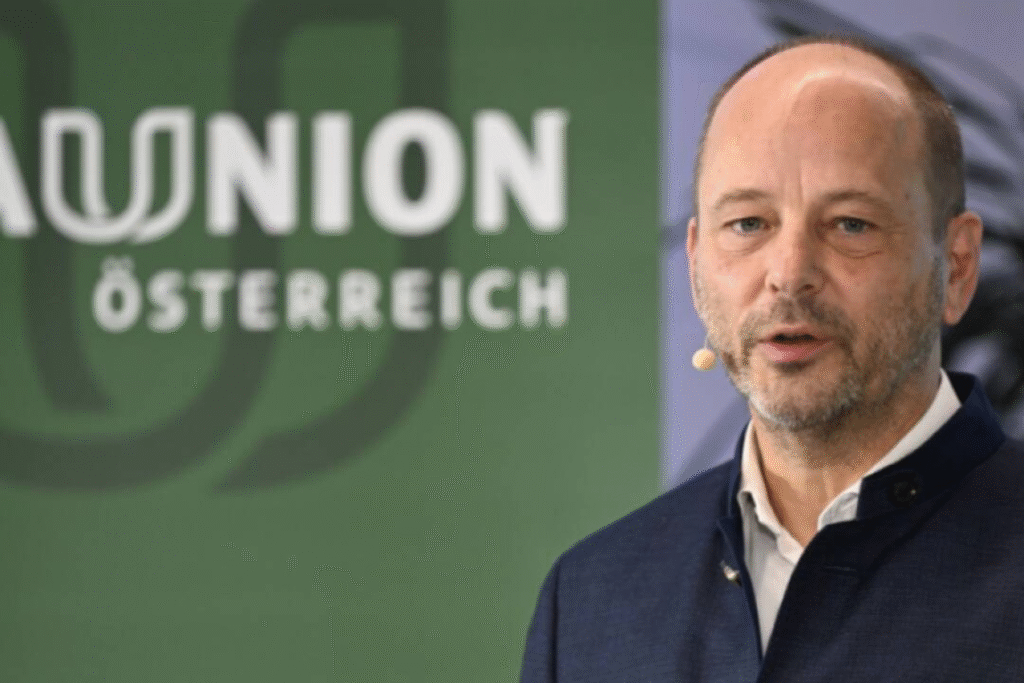
Austria’s largest brewery group, Brau Union, plans to significantly increase sales of non-alcoholic beer. The long-term goal is to reach a market share of around 10 percent, CEO Hans Böhm said Monday during a “Stakeholder Dialogue” in Vienna. Non-alcoholic beer accounted for around 3.7 percent of total output across all Austrian breweries last year. Demographic changes and restrained consumption have recently led to a decline in beer sales in both Austria and Germany.
Both countries rank among the world’s top beer consumers per capita, behind only the Czech Republic. The Austrian Heineken subsidiary Brau Union, which employs around 2,700 people, operates 12 breweries and 15 beer brands nationwide, including Fohrenburger, Gösser, Puntigamer, Schwechater, Villacher, and Zipfer. Roughly half of the 10 million hectoliters of beer produced annually in Austria come from the market leader.
Alcohol Consumption Declining Among Young People
Among young people, alcohol consumption is decreasing, and restaurants and bars are being visited less frequently. Brau Union plans to significantly expand its range of non-alcoholic beers and other alcohol-free beverages across all sales channels. “There should always be a choice,” Böhm said. He noted that the range of options in gastronomy and at events “is not yet optimal everywhere.” Böhm sees strong potential in “freshly tapped” non-alcoholic beer in pubs, restaurants, and at festivals.
The company commissioned the Economica Institute for Economic Research to calculate its “economic footprint.” According to Economica, Brau Union generated €370.7 million in direct value added in Austria in 2024. Including indirect and induced value creation, the total rises to €530 million, Economica Director Christian Helmenstein said at the presentation of the study. When factoring in the downstream hospitality and agricultural sectors, Brau Union’s overall economic contribution amounts to €1.23 billion. Helmenstein highlighted the brewery’s significant tax contribution, particularly through beer tax: the Austrian treasury collected roughly €344 million annually, with total tax and duty revenues across the value chain amounting to €640.4 million.
Gastronomy And Retail Feel Consumer Restraint
Upper Austrian Regional Councillor Michaela Langer-Weninger (ÖVP) described Brau Union as “a good and reliable partner” of agriculture, particularly in hop cultivation in the Mühlviertel region.
For Christian Prauchner, chairman of the Food Retail Division at the Austrian Economic Chamber (WKÖ), beer remains a key product for driving store traffic. “Beer sales are stagnating at a high level,” Prauchner said at the stakeholder event. Given current consumer restraint, “we should be glad if we can maintain this level.” He expressed hope for growth through non-alcoholic beer and greater product variety.
In gastronomy, the price for half a liter of beer has in some places “broken the sound barrier” of €6. Restaurateurs must explain price increases to guests while retailers “run massive promotions,” said Thomas Peschta, chairman of the gastronomy division of the Vienna Economic Chamber. Restaurants aim to win customers over with quality, variety, and the feeling of being an “extended living room,” he said. Peschta hopes visits to bars and restaurants will pick up again as consumer sentiment improves in the coming months. “One beer saves the day, two beers save the pub,” he quipped.
No Comment On Antitrust Proceedings
Brau Union declined to comment on the ongoing antitrust case in Vienna when asked by journalists Monday. The investigation focuses on the company’s collaboration with beverage logistics partners in Austria. According to its annual report, Brau Union has set aside €15.5 million in provisions for potential litigation costs as a precautionary measure.

